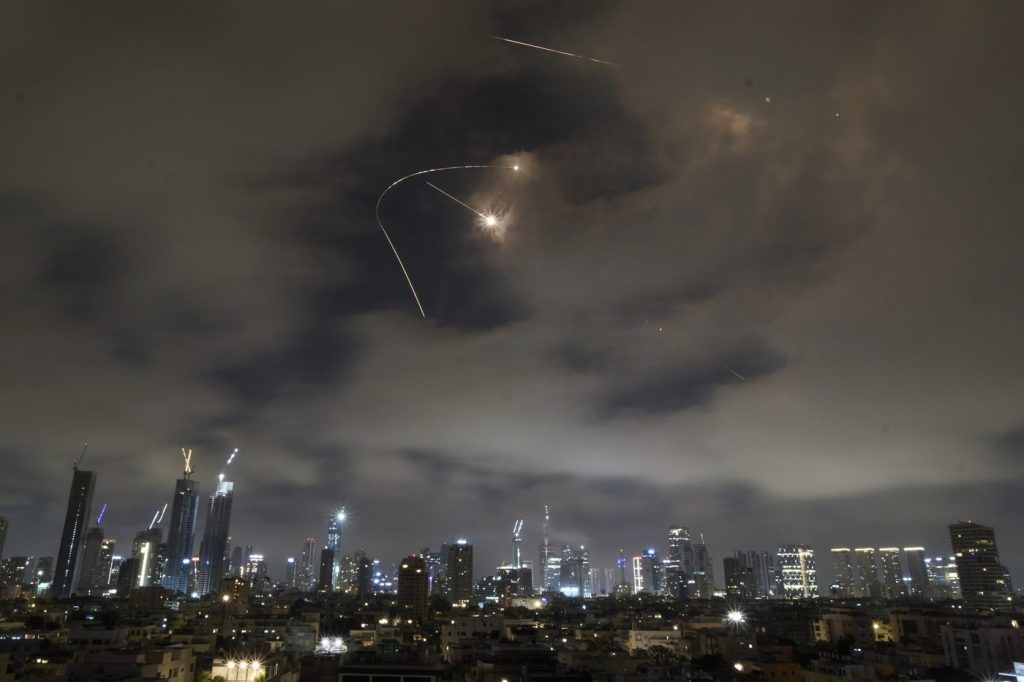In a significant military escalation, the U.S. military launched airstrikes against three key nuclear sites in Iran early Sunday, marking a direct involvement in Israel’s ongoing campaign to dismantle Iran’s nuclear capabilities. This action poses considerable risks amid threats of retaliation from Tehran, potentially igniting a broader regional conflict. The U.S. intervention comes on the heels of Israeli strikes aimed at systematically degrading Iran's air defenses and offensive missile capabilities, while also inflicting damage on its nuclear enrichment facilities.
U.S. officials have emphasized that the deployment of American stealth bombers and the use of a 30,000-pound bunker buster bomb—capable of penetrating deeply fortified sites—provide the most effective means of targeting Iran's nuclear infrastructure. President Donald Trump confirmed the operations, which targeted the Fordo, Isfahan, and Natanz nuclear facilities, as reported by Iran's state-run IRNA news agency. In response, Iran’s foreign minister has stated that Tehran reserves the right to retaliate against these strikes.
Following these developments, Iran’s ambassador to the United Nations called for an emergency meeting of the U.N. Security Council, labeling the U.S. strikes as "heinous" and demanding accountability under international law. Ambassador Amir Saeid Iravani condemned the airstrikes as unprovoked aggression, linking them directly to recent Israeli military actions against Iran’s nuclear sites.
As tensions escalate, the Israeli military has reported incoming missiles launched from Iran towards Israeli territory and has activated its defense systems to intercept these threats. Citizens in Israel have been urged to seek shelter as the situation unfolds. Iranian Foreign Minister Abbas Araghchi has warned that the U.S. attacks will have "everlasting consequences" and that all options will remain available for retaliation, emphasizing Iran's ability to respond in self-defense.
Reports from Iran's semiofficial Fars news agency indicate visible explosions and flames at the Fordo nuclear site following the U.S. strikes. The site’s air defense systems reportedly engaged actively, responding to the attack with anti-aircraft fire. However, Iranian authorities have claimed that there were no signs of contamination at their nuclear sites post-strike, with radiation detectors recording no leaks or danger to surrounding residents.
The U.S. military utilized bunker-buster bombs and cruise missiles in the strikes, aiming specifically at the heavy fortifications of Iran’s Fordo facility. The GBU-57 Massive Ordnance Penetrator, notably heavy and capable of extensive damage underground, was reportedly deployed during these operations for the first time in a combat scenario. U.S. submarines were also involved, launching approximately 30 Tomahawk land attack missiles aimed at multiple Iranian nuclear facilities.
Amid the heightening tensions, the U.S. has increased its efforts to evacuate American citizens from Israel, implementing flights to Europe and reducing staff at diplomatic missions in Iraq due to growing concerns over potential Iranian retaliation. Evacuation flights commenced with 67 Americans departing for Athens on Saturday, with additional flights planned as the situation evolves. Accompanying these measures, Israel has closed its airspace to all flights in response to the strikes, citing "recent developments."
Israeli officials have expressed strong support for the U.S. actions, with President Isaac Herzog and Defense Minister commending the strikes as historic and pivotal in the conflict between what they describe as the "axis of terror" versus the "axis of hope." Following the attacks, Trump personally reached out to Israeli Prime Minister Benjamin Netanyahu, affirming a close partnership between the two nations as they navigate this significant moment in regional geopolitics.











